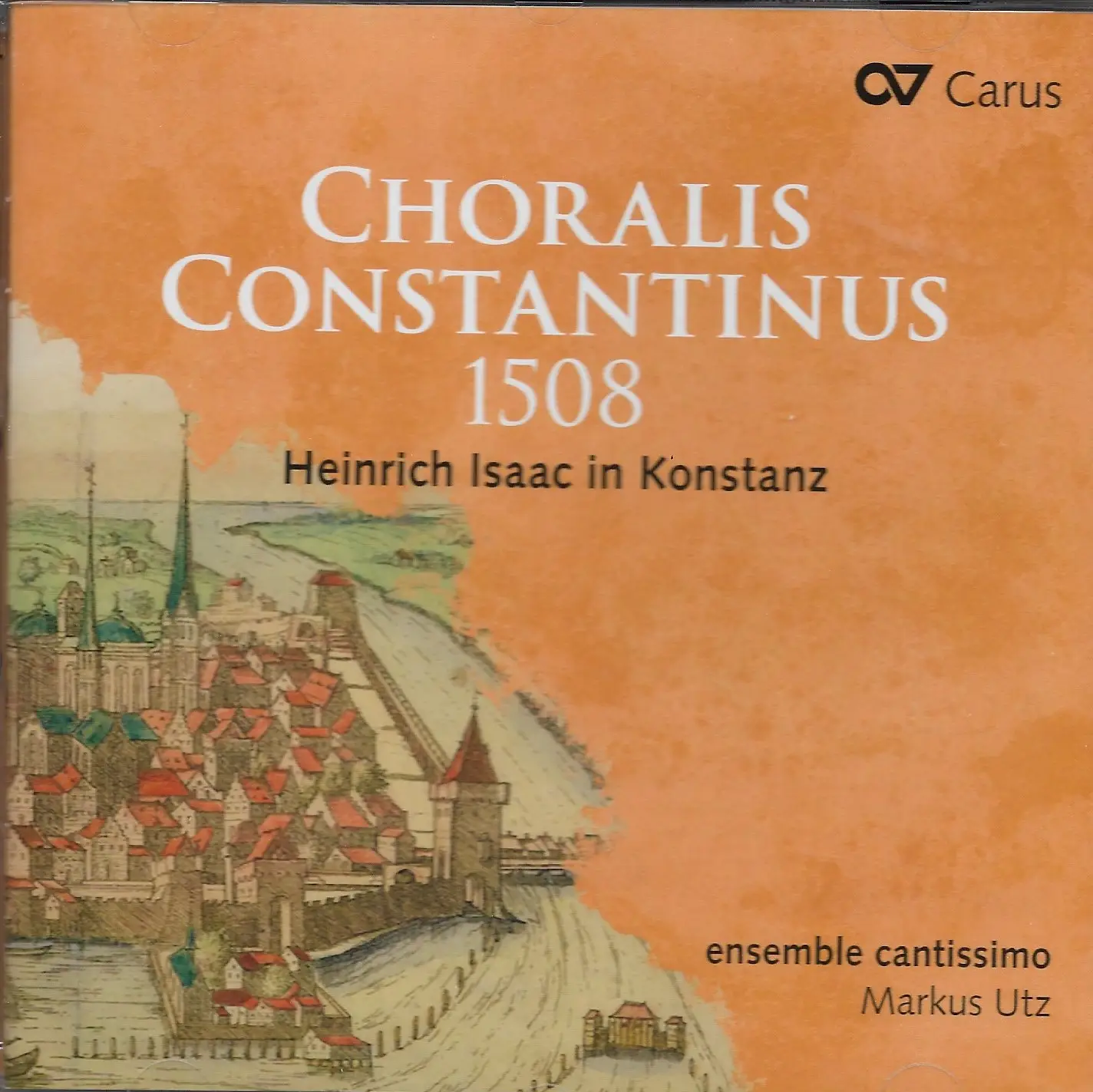Choralis Constantinus 1508
This came in the mail today. To steal David Burns’ words, I am pleased that Markus Utz and his ensemble cantissimo have created this outstanding CD to accompany my liner notes (lol).
All of the music on this CD was transcribed by me from the original mensural notation into modern notation so that good musicians could re-create it. In many ways, this CD is a culmination of my life’s work. I have always been a facilitator – one who creates avenues for others to express themselves. Markus and his ensemble have performed this music as I always heard it in my head. So proud and thankful for all the singers that tackled this challenging music and performed it. They refined and enhanced the editions that appear here.
I am indebted to John MacDonald from the University of Akron and Robert D. Reynolds from Arizona State University, who encouraged me in my pursuit of non-traditional choral music. I also need to acknowledge Carl H. Kandel at Mount Union, who gave me the opportunity to transcribe music. Not only this early music thing, but also my brass compositions and arrangements are because of his encouragement. Thanks to these mentors I became a student of Gregorian chant, early Renaissance music notation, and proportional musical rhythms – all of which were huge assistance in my work in choral music. I recall a colleague being impressed by a guest conductor talking to a choir about John Rutter’s evocation of chant in his Requiem, and thought to myself, “And where did you get your degree…?” Sorry, but that’s my music history snobbishness coming out.

In this CD is a selection of music for important celebrations of the church year. The entire Christmas music is presented. Motets dedicated to Mary have a place. The music sung for Easter and following weeks is represented. The last two motets are music dedicated to the patron saint of Konstanz, St. Conrad.
All of this music is based on the Gregorian chant for that Mass Proper item. This was Isaac’s genius in creating the Choralis Constantinus. While he was equally able to create new melodies (see Innsbruck, Ich muss dich lassen); he was able to take pre-existing melodies and create totally new artforms.
The influence Isaac had on later composers is undeniable. Protestant hymns and forms such as the church cantata; and later Renaissance madrigals can all be traced to his groundbreaking music.
If you wish scores for this music, it is becoming available on this website. Markus and I have decided to make it available to those who wish to perform it.

